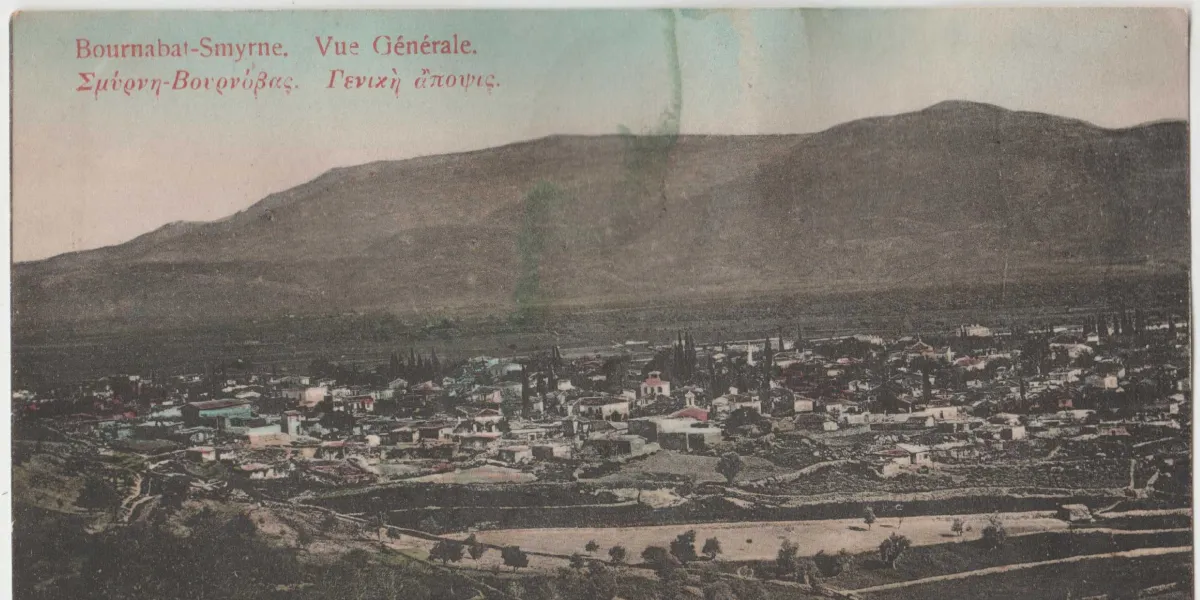Names of Bornova

PRINOBARIS, BURUNABAR, BİRUNABAD, BURUNABAT, BURUNOVA, BURNOVA, BORNOVA
Bornova is an ancient civilization with a history related to humans dating back 8500 years with archaeological findings in Yeşilova Mound, which is also the first settlement of Izmir. Naturally, there are many assumptions about the name history of Bornova due to the cultural influence of many eastern and western civilizations that have ruled this geography during this 8500-year period.
Prinobaris
According to this thesis, which the author Bilge Umar created based on the phrase Prino Barys (Prino Varis)* meaning rough oak tree in the records found in the Lembos Monastery, the names recorded in the following centuries have evolved from this basic name.
*(Bilge Umar, Historical Names in Turkey. 1993 edition p.172)
Professor Dr. Ersin Doğer also interpreted the same hypothesis in a different way in his article titled “Bornova’nın Kısa Tarihi” published in the 1st issue of Tepekule
History Magazine. According to Doğer, the phrase “prinobaris” is found in old Greek records from the 9th century. It seems plausible that the word “prinobar” (which passed into Turkish as “pırnar Ağacı”), which means wild oak tree in ancient Hellenic, changed between the 13th and 14th centuries (with different cultural influences) and became “Burunabar” and transformed into “Bornova” over the centuries.
*Hasan Mert, “Bornova from Past to Present with Social, Economic and Cultural Aspects”
Bîrunâbat
In the Bornova Book published in 1970, the author of the book, Cemal Saran, focused on the idea that the name Bornova was derived from the word Bîrunâbad.
According to Cemal Saran, there are two assumptions about how this region got the name Bîrunâbad.
First assumption: According to Abdülrab Bey, who was originally from India and became a Professor of Indology at the History Department of Ege University in the 1970s, during the conquest of Izmir, the Iranian King Dara named Bornova, which was located outside the city, Birunabad, meaning "outer city".
Second assumption: While describing this region in his Seyahatname, Evliya Çelebi stated that the founders of this city were a Turkish tribe called Birunis, and that this was why it was called Birunabad.
The authors of the book “İzmir Uygulamakat” (Practice About İzmir), F. Slars and Ikonomos, mention that Latris İkessis named it “Akropedon” based on the meaning of Birunabad, i.e., the village outside.*
*Hasan Mert, “Bornova with its Social, Economic and Cultural Aspects from the Past to the Present”
Burunova
Arapzade Cevdet Bey (translator of the İkonomos Seyahatname) mentions the mistake of interpreting the word “Burnova” as derived from the word “Burunabad” as expressed in the İkonomos Seyahatname, and says that the original form of the word is “Burunova”.
In his book “İzmir District in the 15th and 16th Centuries”, Mübahat Kütükoğlu attributes the name “Bornova” to the city being founded on a place that protrudes into the sea like a cape. According to author Kütükoğlu, the name, which was Turkish as “Burunvârî” in the census made in the last quarter of the 15th century and “Burunova” in the 16th century, was transformed into “Burunâbad” by replacing the word “ova” with the Persian “âbad” in the 17th century (which may have been due to the popularity of Persian in the Ottoman Empire in the 17th and 18th centuries), and later this name was replaced by Bornova, a corrupted form of Burunova*
*Hasan Mert, “Bornova with its Social, Economic and Cultural Aspects from the Past to the Present”
As can be seen from the examples above, the name of this region has naturally changed due to the influence of every civilization that has settled in the Bornova geography over hundreds of years.
Today, the general opinion among the public is that the name Bornova was derived from the word Burunova, which was the original name of the region, and later became "Burnova" and then became its current form, because Bornova was built on a cape extending towards the plain.